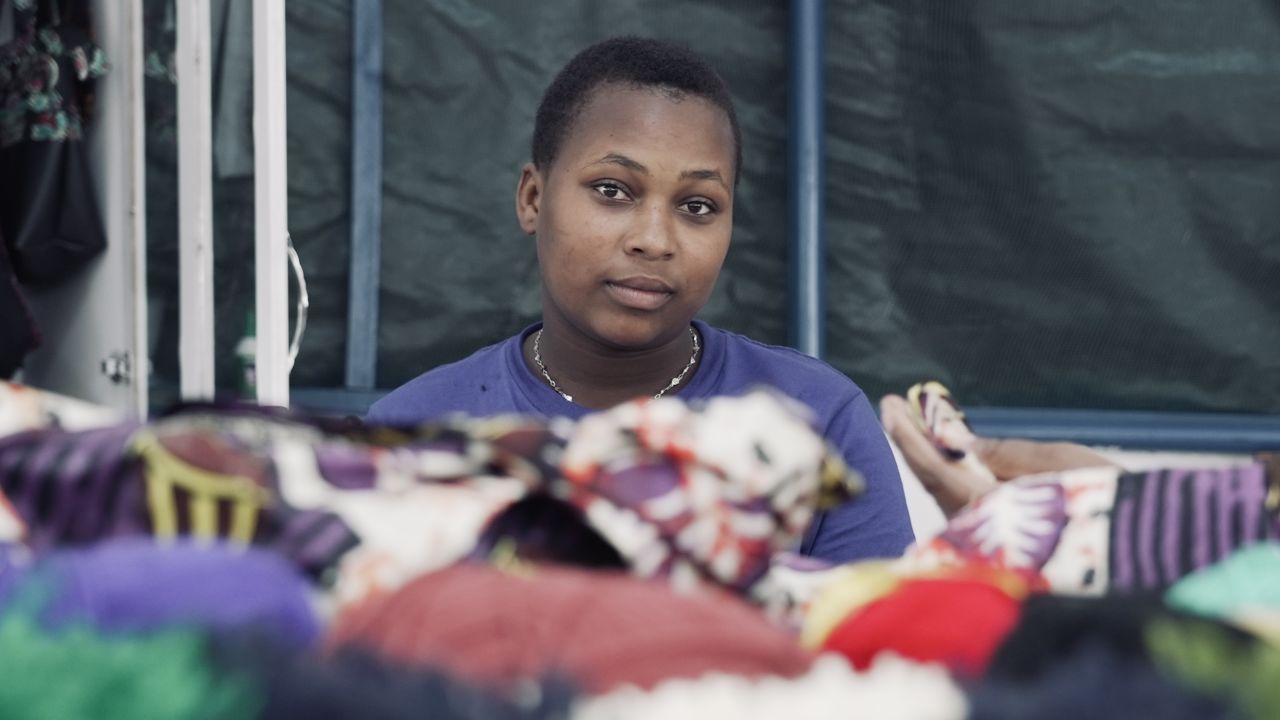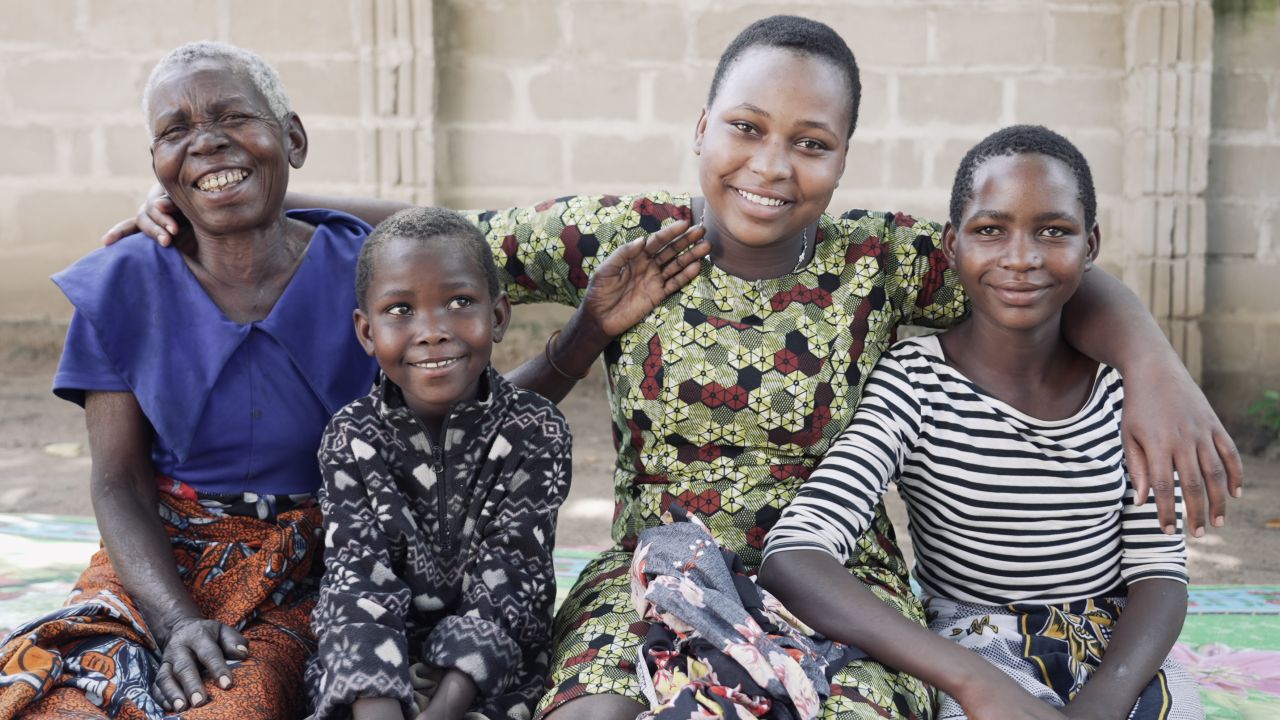CNN
—
Mercy Esther was eight years outdated when she left house.
Raised by her grandmother in rural Tanzania, Mercy Esther and her siblings had been born into poverty, generally with no cash for meals, not to mention faculty books. When her grandmother was approached with a job supply for Mercy Esther in Kenya, and the promise that the cash could be despatched house, she accepted. The cash may assist Mercy Esther’s siblings. They’ll have a greater future.
The job supply turned out to be a lie: the primary in a sequence of damaged guarantees that might rob a younger lady of her childhood and her household.
Mercy Esther was born with a deformity in a single foot, inflicting a pronounced limp. On the streets of Nairobi, she and different kids had been pressured to beg. He instructed her to faux she could not stroll, to elicit sympathy from the viewers. On daily basis he took the cash he collected.
Sooner or later, whereas begging, Mercy Esther was approached by a girl who provided her home work and extra guarantees: a brand new house, a wage and good therapy. She went with the girl, however as an alternative Mercy Esther was mistreated and didn’t obtain cash for her work. It could be six years earlier than he ran away.
Extra content material from CNN’s Freedom Challenge
With the assist of the Nairobi police and the governments of Kenya and Tanzania, Mercy Esther returned to her nation of beginning, however with out particulars of the village the place she was raised, the authorities positioned her within the care of the WoteSawa Home Employees Group, which runs a shelter. for trafficked kids in Mwanza, on the shores of Lake Victoria within the north of the nation.

“Tanzania is a lovely and peaceable nation, however there’s a darkish facet,” stated Angela Benedicto, founder and govt director of the group.
“Many individuals reside in poverty and compelled labor is a really huge drawback,” he added. “The commonest type of human trafficking in Tanzania is home servitude, ladies pressured into home work. They face abuse, exploitation and should not paid for his or her work.”
Round a million kids, principally ladies, are engaged in home work in Tanzania, in response to the non-profit group Anti-Slavery Worldwide.
WoteSawa was established in 2014 and takes in round 75 kids who’ve escaped trafficking annually. The house is small: the youngsters sleep two in a mattress. Some keep longer than others, Benedicto says, particularly these concerned in prison instances, because the proceedings can take time. To date, the nonprofit has helped lots of of survivors, however the wants are better than the accessible assets. Benedicto desires of constructing an even bigger shelter for extra kids.
Its mission is to empower home staff and defend their rights. It’s a topic that’s near his coronary heart; she herself is a former home employee. “I confronted abuse and exploitation, however I used to be in a position to communicate,” he explains. “Many home staff can’t communicate. Who will communicate (for) them?”
“I am utilizing my story to inform them, ‘Do not hand over.'”
WoteSawa means “all are equal” in Swahili. Within the reception middle the youngsters obtain counseling and authorized assist. In addition they obtain an training in literacy and numeracy, and vocational abilities corresponding to needlework. Reintegrating girls and boys again into training goes hand in hand with efforts to reunite kids with their family members, “in order that once they return to their households, they will help not solely themselves, but in addition their households,” he stated Benedict
Lydia lives within the Ngara district within the mountains of western Tanzania. She left house to turn out to be a home employee on the age of 16, however her employer beat her and didn’t pay her for her work. She escaped and was helped by WoteSawa, the place she realized to stitch. Lydia returned to her household with a stitching machine supplied by WoteSawa and immediately is a dressmaker who desires of proudly owning her personal store.
“He is making sufficient cash to assist his household,” Benedicto stated. “Her dream is to assist different ladies know the best way to sew. She has a plan to present again to the group.”
Along with serving to survivors of trafficking, WoteSawa works to stop it from occurring. Benedicto coordinates with the officers on the bus station in search of babies, and with the native police who’ve powers to intervene.
“My mission is to guarantee that (the) crime of human trafficking is dropped at an finish, fully. And it’s via training that we are able to obtain (that),” stated Police Commander Juma Jumane. “We’ve to coach households. We’ve to coach the sufferer, herself. We even have to coach society usually.”
When Mercy Ester arrived on the shelter she was reluctant to share the identify of her village as a result of she feared she could be handled once more if she returned there. However finally he modified his thoughts.

CNN met Mercy Esther via the Poland-based Kulczyk Basis, which helps WoteSawa.
WoteSawa was capable of finding his household and took his grandmother and siblings to the shelter. It had been eight years since they final noticed one another. “It was very emotional,” Benedicto stated. “They cried, they hugged one another. I believe we had been all very emotional. We had been in tears of pleasure.”
Mercy Esther continues to be uncomfortable with the thought of returning to her village and has chosen to remain on the shelter till she is older and expert sufficient as a seamstress to start out a enterprise to assist assist her household.
“His future is so brilliant,” Benedicto stated. “I can see that he shall be a light-weight to his brothers.”


